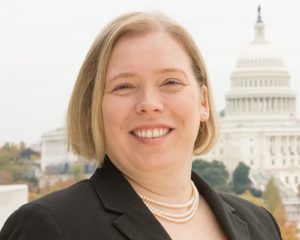 Dear Judge Kavanaugh:
Dear Judge Kavanaugh:
As a fellow attorney who – like you – takes my faith seriously and is actively engaged in my congregation, I am sure we have much in common. However, we seem to disagree about the robust way that the First Amendment’s Establishment Clause, alongside the Free Exercise Clause, has protected religious liberty in our country and permitted religious dissenting groups – including Baptists and Catholics – to thrive.
The institutional separation of religion and government is a foundational aspect of our democracy, one deeply rooted in our shared history and experience.
In reviewing your record, I was disappointed to learn that you think the metaphor of a wall of separation is “wrong as a matter of law and history.” Admittedly, all metaphors are imperfect; yet, good metaphors are one of the best ways to conceptualize an abstract idea. As a religious liberty advocate, constitutional attorney and ordained Baptist minister, I urge you to reconsider the metaphor you’ve disparaged.
The wall metaphor was first articulated by Roger Williams, founder of Rhode Island and the First Baptist Church in America. He said that a wall was needed to protect the “garden of the Church” from the “wilderness of the world.” Church and state governed two different realms, and neither would ever truly succeed if distracted by the ultimate concerns of the other. President Thomas Jefferson famously picked up the metaphor and used it to reassure Baptists in Connecticut that the new constitutional government would indeed protect their religious freedom.
“For faith to be vital, it must be voluntary and uncoerced.”
Separating the institutions of religion and government ensures that the rights and responsibilities of citizenship do not rise or fall based on compliance with state-sanctioned religion. The institutional wall provided space for our dissenting religious ancestors to seek converts and pass their religious teachings down to current generations. It is up to the people, not the government, to teach our respective faith traditions to future generations. For faith to be vital, it must be voluntary and uncoerced.
This is why the concept of a wall of separation worked for Roger Williams and President Jefferson – and still works today. The wall does not keep people of faith from the public square but separates institutional control. There is debate about the application of “the wall,” but it is certainly not “bad history,” nor is it useless in modern debates.
“It is not the role of the state educational institution to dictate religious conformity by telling students when or how to pray.”
Judge Kavanaugh, we see this in our public schools. I imagine that, like myself and millions of other Americans, you place a high value on the power of prayer and see it as a conversation with God. I know that you and I agree that public school students have the right to individually and collectively pray on school grounds. What I am unsure of is whether you also agree that students have the right to choose not to pray. It is not the role of the state educational institution to dictate religious conformity by telling students when or how to pray. Even between us Christians, there is a vast difference between typical Catholic prayers and typical Baptist prayers, let alone the prayers of non-Christian faiths. A government institution should never be allowed to force any of us, much less children in state-run schools, into religious observance.
Colonial Baptists, Catholics and other dissenters endured imprisonment, whippings, fines and other forms of state-sanctioned religious persecution so that each American could voluntarily choose to be a person of faith or not. As members of the American legal community who value our respective faith traditions, we must remember and continue to honor those sacrifices by taking seriously – and enforcing robustly – both Religion Clauses of the First Amendment.
America has never been united by a single religion, but in the Constitution we secured unity in a commitment to religious freedom for all people. Separation of church and state is good for both.
Respectfully,
Rev. Jennifer Hawks
Associate General Counsel of the Baptist Joint Committee for Religious Liberty
